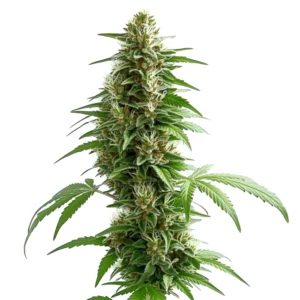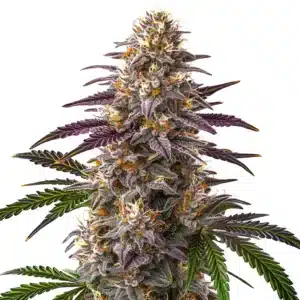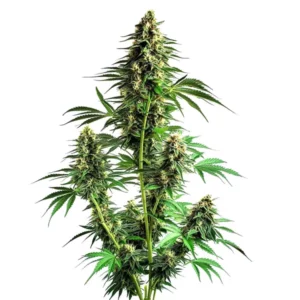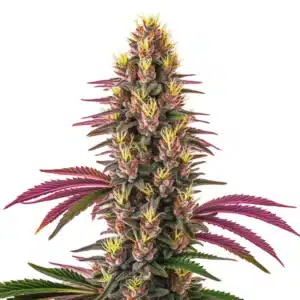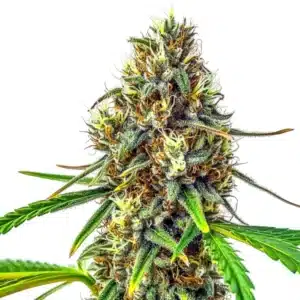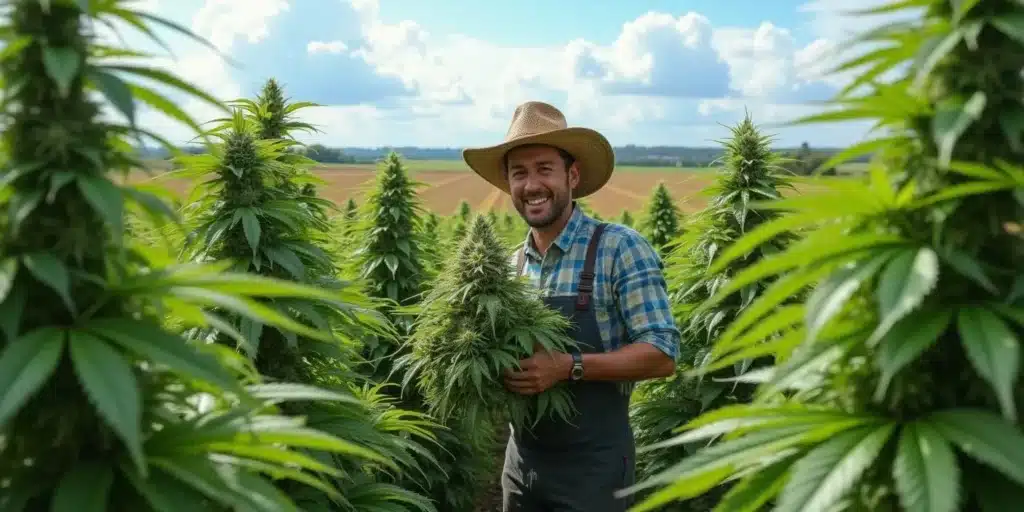
Biochar in Cannabis Soil: Enhancing Growth and Yield
Growing cannabis successfully depends largely on the quality of the soil you use. Many growers are turning to biochar as a beneficial addition to their soil mixes. This carbon-rich material can create a nutrient-rich environment that promotes healthy plant growth. Let’s delve into what biochar is, its benefits, and the best practices for using it in cannabis cultivation.
What is Biochar?
Biochar is a specialized form of charcoal that is produced through a process called pyrolysis. During this process, organic material is heated in a low-oxygen environment, converting it into a stable, carbon-rich substance. This method is designed to create a product that not only supports soil health but also plays a role in environmental sustainability.
Recommended Strains
Green Crack
|
|
THC | 21% (Medium) |
|
|
Type | Feminized |
|
|
Yield | High |
|
|
Phenotype | 35% Indica / 65% Sativa |
Green Crack Auto
|
|
THC | 18% - 20% (Medium) |
|
|
Type | Autoflowering |
|
|
Yield | High |
|
|
Phenotype | 50% Indica / 50% Sativa |
Unlike regular charcoal, biochar has unique properties that improve soil fertility and structure. It can enhance water retention and nutrient absorption, which are critical factors for healthy cannabis growth. Its porous structure allows it to hold moisture and nutrients, ensuring that plants receive what they need to thrive.
How Biochar is Made
The production of biochar begins with organic waste materials like plant residues, agricultural byproducts, or even food scraps. These materials undergo pyrolysis, where they are heated without oxygen. This creates a durable form of carbon that can be used to enrich soil. The result is a lightweight, porous material that is perfect for enhancing soil quality.
Common feedstocks for biochar include:
- Wood chips
- Crop residues
- Manure
- Food waste
These feedstocks are chosen for their availability and their ability to create high-quality biochar that improves soil health and fertility.
Promos & Deals
Benefits of Adding Biochar to Cannabis Soil
Integrating biochar into your cannabis soil mix can offer a multitude of benefits. Among these are enhanced nutrient retention, better soil aeration, and increased microbial activity. Each of these factors plays a vital role in fostering a healthier and more productive environment for cannabis plants.
By improving the soil structure and fertility, biochar can help optimize the growing conditions that are essential for high-yield cannabis cultivation. Growers can leverage these advantages to achieve better growth rates and potentially higher-quality yields.
Nutrient Retention and Soil Fertility
One of biochar’s standout features is its ability to retain essential nutrients in the soil. For cannabis plants, a well-balanced nutrient profile is crucial for healthy growth and development. When biochar is mixed into the soil, it can effectively hold nutrients such as nitrogen, phosphorus, and potassium, making them available for plant uptake.
This is particularly beneficial in sandy soils, which tend to drain quickly and can cause nutrients to leach away. By incorporating biochar, growers can significantly reduce nutrient losses. Imagine your plants consistently accessing the nutrients they need without the worry of them washing away after a heavy rain. That’s the power of biochar!
Improved Soil Aeration and Drainage
The porous nature of biochar provides a dual benefit by improving soil aeration and drainage. Well-aerated soil allows oxygen to penetrate down to plant roots, promoting stronger and healthier growth. Additionally, good drainage is necessary to prevent waterlogging, a common concern that can lead to root rot and other problems in cannabis cultivation.
For growers in humid climates or those utilizing denser soil mixes, incorporating biochar can help find the perfect balance between moisture retention and drainage. In this way, it creates an ideal habitat for cannabis plants to flourish and thrive, ultimately leading to better harvests.
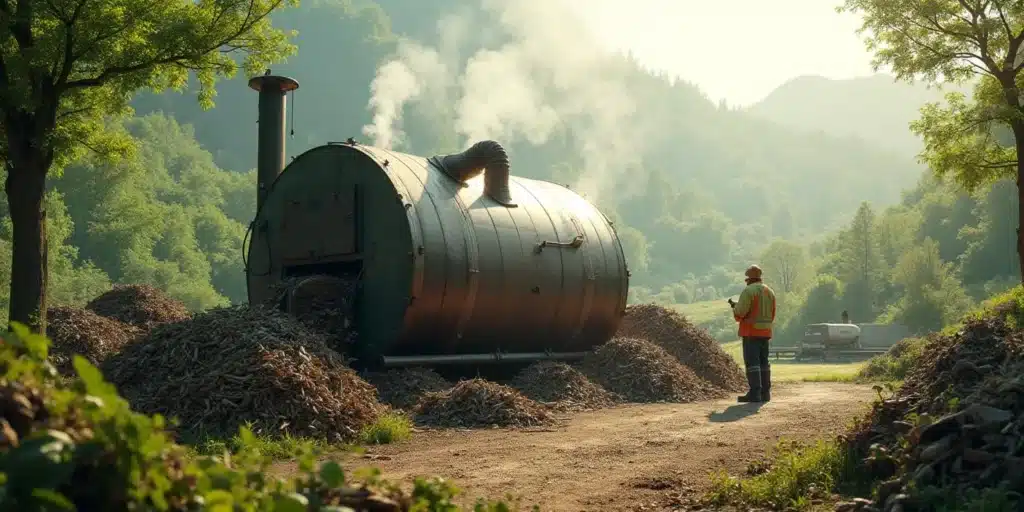
Best Practices for Using Biochar in Cannabis Soil
When integrating biochar into your cannabis soil mix, a few key best practices can help you maximize its benefits. Careful planning and setup ensure that you’re creating the best possible environment for your plants.
It’s essential to start off on the right foot, this means choosing high-quality biochar and considering how it fits into your overall soil health strategy. Here are some steps to follow for effective biochar application.
Choosing the Right Biochar
Selecting high-quality biochar is a fundamental step. It’s important to source biochar made from clean, sustainable feedstocks, avoiding any products that contain contaminants. Not all biochar is created equal, and choosing the right kind can make all the difference in plant vitality.
Before incorporation, consider pre-conditioning your biochar. Soaking it in a nutrient-rich solution or compost tea can enhance its effects by infusing it with beneficial nutrients and microbes. This pre-treatment step is akin to marinating meat, allowing your biochar to soak up these nutrients makes it even more effective when integrated into the soil.
Determining the Right Amount
Applying biochar in moderation is vital for maintaining soil balance. A common recommendation is to mix around 10-20% biochar into your growing medium. Start within this range, then monitor your plants’ reactions, this can help you adjust for optimal growth outcomes.
Many cannabis growers find success with a concentration closer to 15%. This proportion suits typical soil mixes while capitalizing on biochar’s benefits without overwhelming the existing soil structure. Think of it as seasoning your dish, too much can throw everything out of balance, but the right amount can elevate the entire experience.
Selecting the Right Strains for Biochar-Enhanced Soil
Certain cannabis strains may thrive more effectively in biochar-enhanced soil. These strains typically have distinct nutrient needs and growth characteristics that align well with biochar benefits. Here are some strains particularly suited for this type of soil:
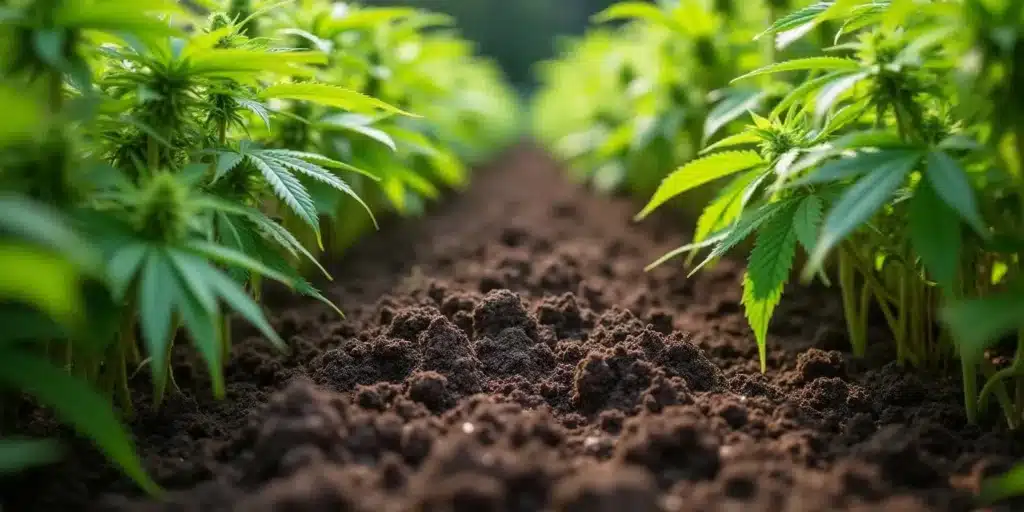
- GG4: Known for its resilience and high yield, this strain flourishes in nutrient-rich environments, making it ideal for biochar integration.
- Blue Dream: A staple among growers, Blue Dream thrives when provided with rich nutrients, making biochar an excellent companion.
- Green Crack: This strain shows vigorous growth under optimized soil conditions, making biochar a perfect match to amplify its potential.
By aligning the right strains with your biochar-infused soil, you set the stage for optimal growth and outstanding yields. The synergy created between the soil and strain selection can lead to impressive results.
Monitoring Plant Health
Once you’ve incorporated biochar and selected appropriate cannabis strains, monitoring plant health becomes paramount. Look out for any signs of nutrient deficiencies or excesses. Symptoms include yellowing leaves, stunted growth, or unusual discoloration, which may indicate a need for soil adjustments.
Regular soil testing for pH and nutrient levels is also beneficial. Cannabis generally prospers at a pH range of 6.0 to 7.0. If you notice any health declines, adjusting the soil mix with additional amendments can significantly enhance the thriving conditions for your plants.
Frequently Asked Questions
What is the ideal pH level for cannabis grown in biochar soil?
The ideal pH level for cannabis is typically between 6.0 and 7.0. Using biochar can assist in regulating this pH range while improving nutrient retention, which benefits overall plant health and development.
Can I use biochar if I’m growing cannabis in pots?
Absolutely! Biochar can provide significant benefits for pot-grown cannabis. Incorporating biochar into your potting mix promotes enhanced drainage and aeration, which are crucial for healthy root development. Just remember to adhere to the same application guidelines as you would for in-ground cultivation.
Is biochar safe for organic cannabis cultivation?
When sourced correctly, biochar can be a safe and effective amendment for organic cannabis cultivation. Always choose biochar that is certified organic and produced without harmful additives to guarantee it contributes positively to your cultivation practices.
How often should I apply biochar to my cannabis soil?
Biochar does not require frequent applications. Typically, incorporating it into the soil mix at planting is sufficient. However, assessing soil health and re-adding biochar every couple of years can continue to provide benefits based on plant responses.
Does biochar have any negative effects on plant growth?
Used correctly, biochar is generally beneficial for plant growth. However, over-application can lead to nutrient imbalances or may inhibit growth. Monitoring your plants’ health and the soil conditions closely is crucial to avoiding any adverse effects.
Incorporating biochar into your cannabis soil mix offers an opportunity to enhance plant health and yield remarkably. By opting for quality biochar, adhering to best practices, and selecting suitable strains, you can create a thriving environment for your cannabis plants, paving the way for robust growth and bountiful harvests. From the exciting journey of growing cannabis to the rewarding results at harvest time, biochar is an invaluable ally in your cultivation adventure!



